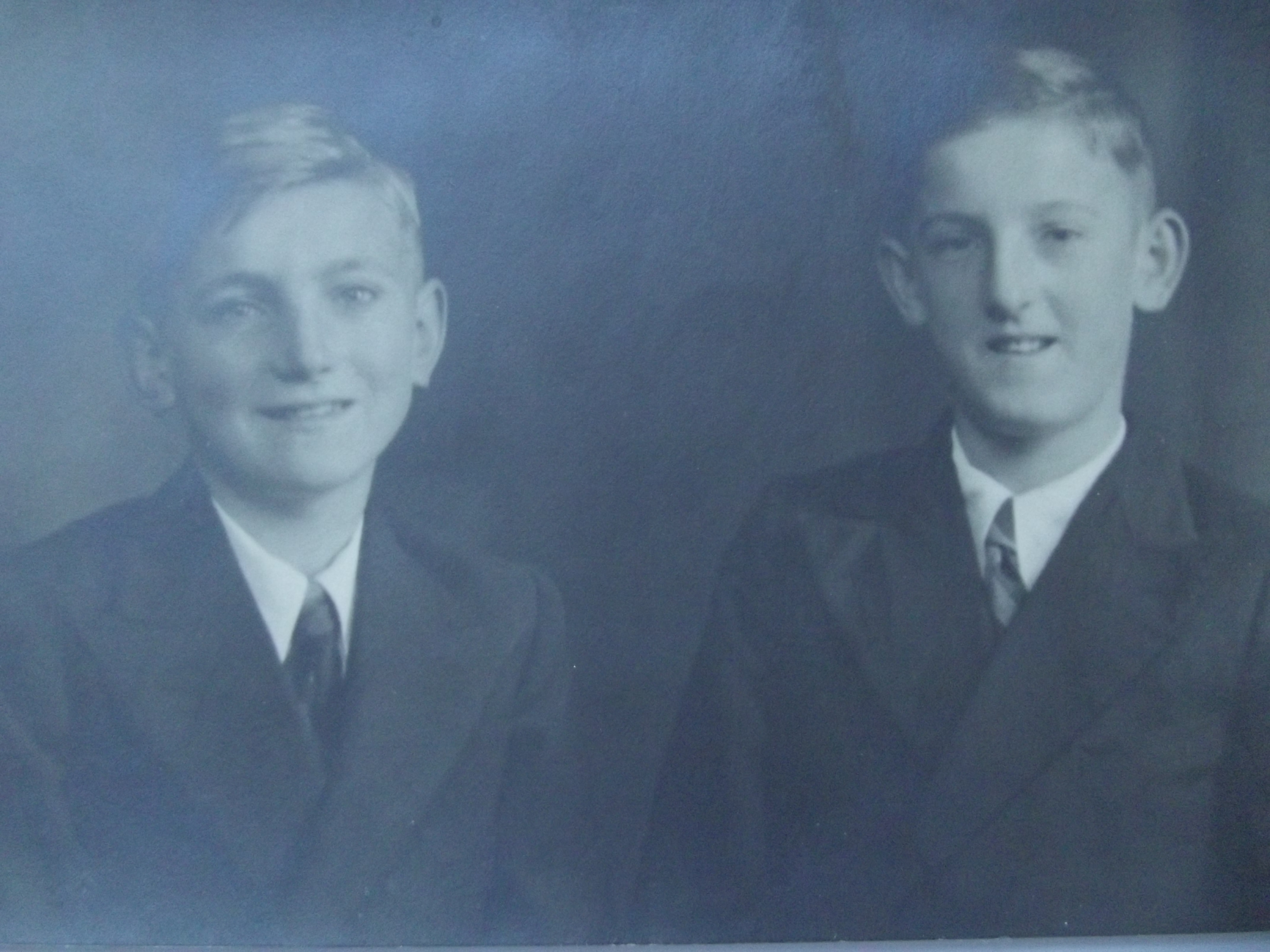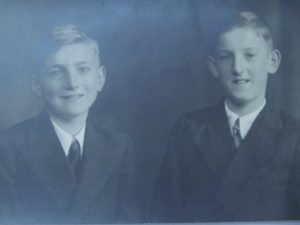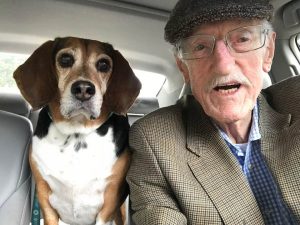
 Jack, left, and Don, right in 1939
Jack, left, and Don, right in 1939
Tradition says that anyone born within the sound of Bow bells is a true Cockney. My husband Don certainly qualifies on that score: he was born at Lambeth, not far from the church of St. Mary-le-Bow. “Grandpa is walking, talking history,” I tell our grandchildren. Recently he shared his boyhood memories of wartime London with us.
“I had just turned nine three weeks before Britain declared war on Germany,” Don recalled. “The news was broadcast on the wireless that Sunday and the next day the teachers announced it at Lowther Road Primary School, which I attended.”
Soon after the announcement Don’s school was evacuated by train to Burnham, 30 miles from London. He was evacuated with his brother Jack, who was two years older. When the children arrived the organizers of the evacuation arranged for them to be placed in people’s homes. As Don and Jack were the last two evacuees, the organization didn’t have a place for them, so finally the boys were billeted with a family who lived in a row of cottages.
Asked what it was like living with strangers, Don replied, “It wasn’t very nice. My brother and I had to share a blanket, even though it was quite cold. The place was a real pigpen. After every meal what we didn’t eat was scraped back into a pot and we had it the next day. We went to the local school, which was set up for the evacuees to attend in the morning and the local children in the afternoon. My older brother Bob, who was 14 and therefore hadn’t been evacuated, came to visit us. After he told our mother about the conditions we were living in she complained bitterly, so a nicer house was found for us. When the owner found out she would be raking lice out of our hair, she said she would never have taken us in if she’d known. The war was little in evidence at that time, so our parents brought us back to London at Christmas 1939.”
After Don and Jack returned home, Don’s school was bombed. When the schools finally reopened nine months later, Don attended Barnes Central School with Jack.
All three boys helped their father dig an Andersen shelter in the back garden of their house. “He had to go down three feet to dig the six-by-eight feet shelter,” Don remembered. “The dirt we dug out was put back on top of the corrugated steel roof. It was damp in the shelter, which is how I developed bronchial problems. Dad never came down there, so after a while we simply stayed in our house during air raids. We lived in West London and the worst bombing was in the East End.”
Asked if he ever saw a dogfight between the RAF and the German planes in the searchlights at night, Don shook his head. “No, when the planes were dropping their bombs the searchlights were used to aid the anti-aircraft guns on the ground. We used to jump on our bicycles after an explosion to see if we could pick up any shrapnel, mainly from the big guns fired by the army. Later in the war we saw and heard the V-1 and V-2 rockets, also called ‘buzzbombs.’ The engine made a droning noise. One of them fell at the back of the Regency Cinema in Hammersmith, obliterating my dad’s truck that was parked there.”
When V-E Day was declared in May 1945 Don was nearly fifteen. “Everyone was overjoyed that the war was over. We all went to the West End and stayed around Trafalgar Square among the huge crowds.”
During the “austerity” that reigned in Britain until 1954, Don attended Kingston Technical College in Richmond-on-Thames, served two years in the Royal Air Force, and later spent some time working in Rhodesia. In 1965 he emigrated to America where he married, became a U.S. citizen, and brought up a family.
It’s easy to forget that from 1939 to 1942 it was not a foregone conclusion that the Allies would win the war. The threat of a German invasion of Britain was all too real. We Americans must remember that we owe Britain—standing alone against Germany until America entered the war in December 1941—our undying gratitude.


I’m so glad you wrote this up, Diana. It’s a gift for all of us, not just your grandkids. I hope it prompts many more family conversations; I bet The Littles would have many questions that would never even occur to adults.
Thanks, DoReMI!
I do want to start writing more about his memories. Elder Son always videos our family gatherings. Dearly Beloved is 88 and our youngest grandchild is three.
{{{Diana}}} – thank you for giving us this gift for Thanksgiving. The memories of the way it really was as far as the folks there are/were concerned tells us much about how and why people reacted. Even when their perception of what was going on wasn’t accurate. (& I can so understand the boys going off on their bikes looking for shrapnel after explosions. That’s exactly what my sons would have done under the circumstances.) It also reminds us that devastating things of the past are the roots of the tree we are and live in. That your husband still is dealing with bronchial problems due to time spent in an Anderson shelter should teach us that if we didn’t realize it already. Thank you again. moar {{{HUGS}}}
Thank you for reading and commenting, bfitz! Yes, as a matter of fact Dearly Beloved’s COPD stems from those early days. It’s one of the reasons he emigrated—the British climate didn’t agree with him.
Thank you Diana. I want to share the family history I remember with my grand children, but memories are fading and I have no one left to refresh mine. I hope to make time this winter to organize the old family pictures and to write down what I know before it’s all lost.
Hope very much that you will share your memories, princesspat, and write down what you remember. There comes a time in most people’s lives when they want to find out about family history. I want to make sure ours is there.